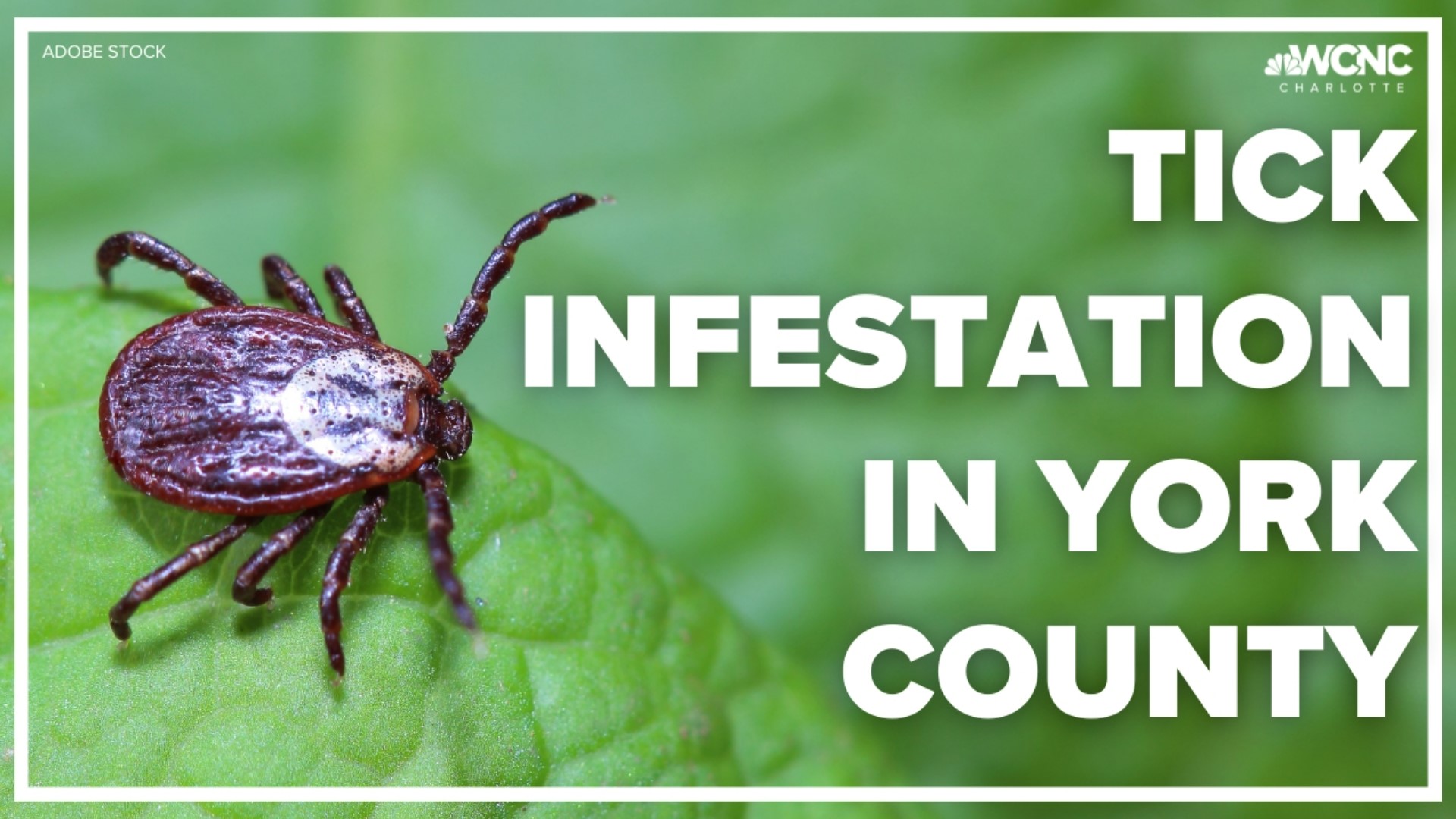YORK COUNTY, S.C. — South Carolina health officials have found a large population of Asian longhorned ticks infesting a cattle farm pasture in York County.
According to the South Carolina Department of Health and Environmental Control (SCDHEC), the invasive species is not commonly found in the U.S., and bites from these ticks have caused severe illnesses in people, animals and livestock in other countries.
"While no documented cases of diseases such as Lyme disease, Rocky Mountain spotted fever, or anaplasmosis have been reported in the United States due to bites from Asian longhorned ticks, the ability of this tick species to spread diseases that can make people and animals ill is a concern,” Dr. Chris Evans, State Public Health Entomologist with DHEC's Bureau of Environmental Health Services, said.
DHEC said that a single female Asian longhorned tick can produce 1,000 to 2,000 eggs at a time without mating, meaning a single animal could host thousands of ticks.
Doctors in South Carolina recommend animal owners consult their veterinarian about the use of products approved for other tick species that are found to be effective in treating animals with the Asian longhorned tick.
Health officials recommend the following practices to help prevent tick bites and possible exposure to tick-borne illnesses:
- Use U.S. Environmental Protection Agency (EPA)-registered insect repellents containing DEET, picaridin, IR3535, oil of lemon eucalyptus, para-menthane-diol, or 2-undecanone.
- Treat clothing and gear, such as boots, pants, socks, and tents with products containing 0.5% permethrin. Follow all label directions.
- Wear protective clothing tucked in around the ankles and waist.
- Shower with soap and shampoo soon after being outdoors.
- Keep weeds and tall grass cut and avoid tick-infested places such as grassy and marshy woodland areas when possible.
- Stay in the center of paths when hiking or walking through woods.
- Check for ticks daily, especially under the arms, in and around the ears, inside the belly button, behind the knees, between the legs, around the waist, and on the hairline.
- Check pets for ticks daily and treat pets for ticks as recommended by a veterinarian.
The U.S. Department of Agriculture (USDA) first reported Asian longhorned ticks in the U.S. in 2010 and have since been found in 17 states.
In South Carolina, a small number of these ticks were identified in 2020 on shelter dogs in Lancaster and Pickens counties.

